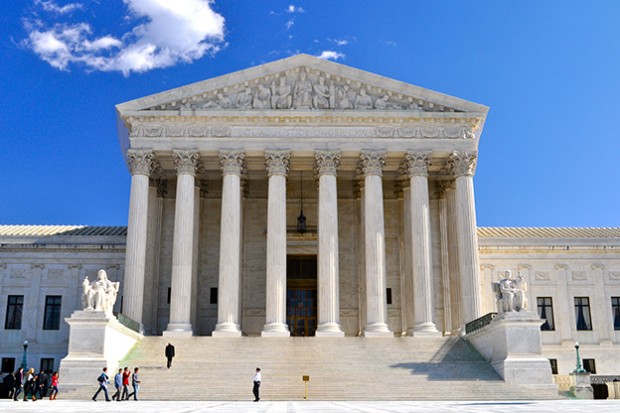What The Supreme Court’s Decision Means For Affirmative Action In Indiana

Legal experts say the Supreme Court decision on affirmative action this week was narrow, meaning schools like Indiana University won’t have to change. The Court reaffirmed its stance that race can be considered, among a number of factors, when choosing which student submissions to accept. (TexasGOPVote/Flickr)
After the Supreme Court upheld an affirmative action program at the University of Texas, legal experts in Indiana say it likely won’t have a major effect on local school enrollment.
The Supreme Court Thursday ruled in favor of the University of Texas allowing the school to continue their affirmative action program. Abigail Fisher, who is white, was not accepted into the school in 2008. She’s since argued that she was discriminated against based on her race.
Legal experts say the Supreme Court decision on affirmative action this week was narrow, meaning schools like Indiana University won’t have to change. The Court reaffirmed its stance that race can be considered, among a number of factors, when choosing which student submissions to accept.
“[Affirmative action] is not about ensuring success for people, it’s about providing opportunity and access to opportunity for people,” said David Johnson, Indiana University’s vice provost for enrollment.
Colleges are not required by law to consider race when accepting students, but Indiana University does. Johnson said race will remain one of many factors considered as part of a holistic process.
“It’s very clear that a diverse learning environment provides a quality education for all involved, not just the underrepresented students or majority students,” Johnson said.
Professor of law at IU’s Maurer School of Law Kevin Brown said he thinks the driving force behind affirmative action should be globalization.
“As our kids come more and more into contact with people from other countries, other cultural backgrounds, they really need a totally different set of skills,” Brown said.
Since one Supreme Court chair remains empty, Brown warned that the coming presidential election could have an impact.
If Hillary Clinton is elected, Brown said, affirmative action is probably safe. But with a possible Donald Trump presidency, it could be challenged again.
Steve Sanders, associate professor of law at IU’s Maurer School of Law, said the nature of what affirmative action could be up for debate — is it to make up for past inequities or to ensure diversity in on current college campuses?
Sanders said the Supreme Court’s interpretation gives one specific view.
“The purpose of affirmative actions is not to make up for social disadvantage, it’s not to ensure African-American and Latino needs,” Sanders said. “It’s really concerned with the institution’s needs.”
Affirmative action programs in Indiana and around the country was the subject of WFIU’s Noon Edition this week.
Listen to the entire show and hear from lawyers and college administrations about the state of affirmative action in Indiana. They touched on the role of changing demographics, root causes for affirmative action and the role of the Supreme Court.
WFIU’s Drew Daudelin contributed to this report.